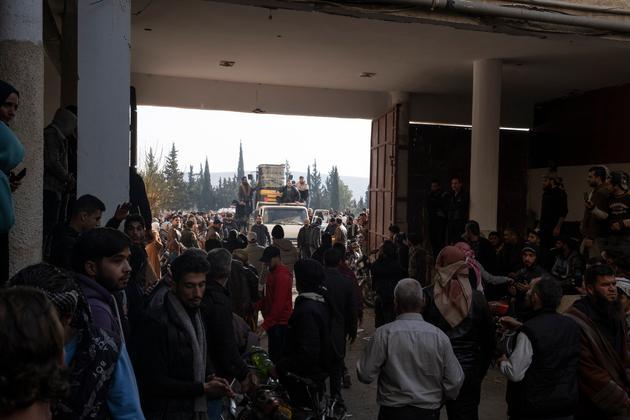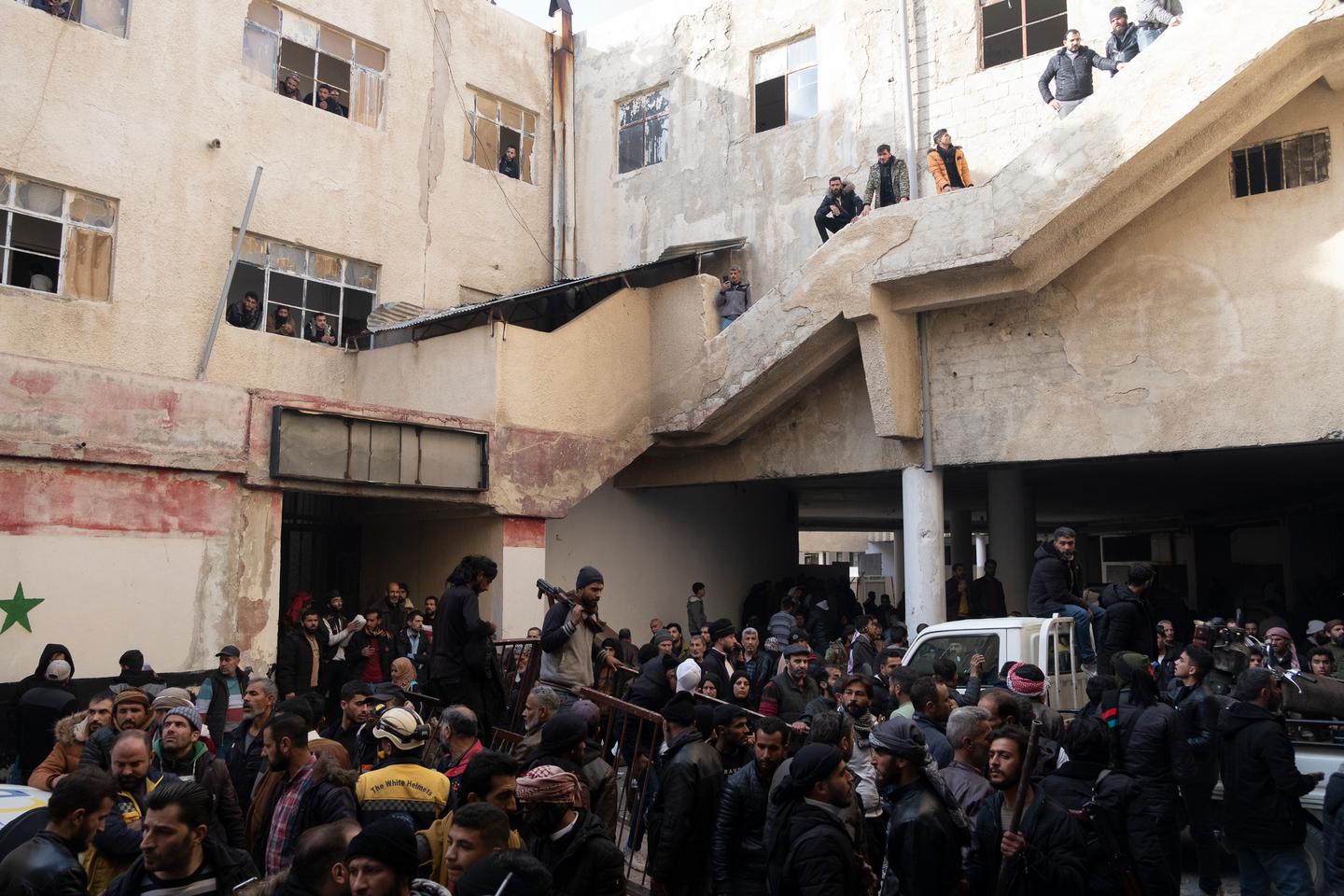Two women and a man, desperate, their eyes hollowed out by dark circles, were pacing like sleepwalkers on the road leading to the entrance gate of Saidnaya prison, some 20 kilometers from Damascus, Monday, December 9. “My son, Manhal Nuail Salem, he was 15 when they arrested him in 2014.” “Mine is called Youcef Abdallah Jassem. We’re from Mazraat al-Nafour, he was kidnapped in 2018.” “My son’s name is Ahmed al-Majari. Also arrested in 2018, a neighbor who was released in 2021 assured me that he had seen him alive…”
In the aftermath of the fall of Bashar al-Assad’s regime, thousands – perhaps tens of thousands – of families of disappeared people are crowding in and out of Saidnaya, driven by one mad hope: to find thousands of detainees in the compound’s basements. In distress, in tears, a slow procession moves forward over several kilometers, hoping that the concrete monster will spit out some prisoners alive, perhaps a relative swallowed up by the prison hell of the Assad family.

As they make their way up the dirt track cut through the barbed wire and trenches that surround the prison, located higher up on a hill, the families discover the place so feared, so guarded, where there is no mobile network coverage. Each person carries the story of an arrest, a detention, the disappearance of a father, a son, a cousin or a friend. Each telephone holds the last memory of a missing person. As they arrive at the front of the building, men peel back fragments of notebooks in search of the names of their loved ones, before making their way to the main building.
Hundreds wait tirelessly on the ground opposite, stretched out on the sand or sitting in the shade of a shrub. Standing on Russian-made infantry vehicles, abandoned there by army soldiers as the rebel forces arrived, fighters and civilians indulge in a glimmer of pride as they photograph themselves with their phones.
A sprawling surveillance network
At the entrance, a car with Lebanese plates tried to make its way through the crowd. The release of a Lebanese detainee from Hama prison, after 35 years of detention, had rekindled a fragile hope among the families of Lebanese missing persons, kidnapped at checkpoints by the Syrian army, which intervened in the country in the 1980s.
In Syria, prison hell is an experience handed down from father to son. It can take its toll on the destiny of the youngest. An old man leaning on his cane, a small white cap on his head, didn’t want to give his name. Fear of the regime still lingered. “The pig is gone!” a woman next to him called out. “They imprisoned me! Seven times!” he suddenly started shouting. A stream of trembling, painful words followed: Ahmad al-Salahi, his son, was swallowed up by Saidnaya 14 years ago after being arrested at the border with Lebanon. He was 27, with a wife and child. Today, his father is 77. “We must bring [Bashar al-Assad] back and try him here,” he implored, twice. Before limping off again.
You have 72.94% of this article left to read. The rest is for subscribers only.

